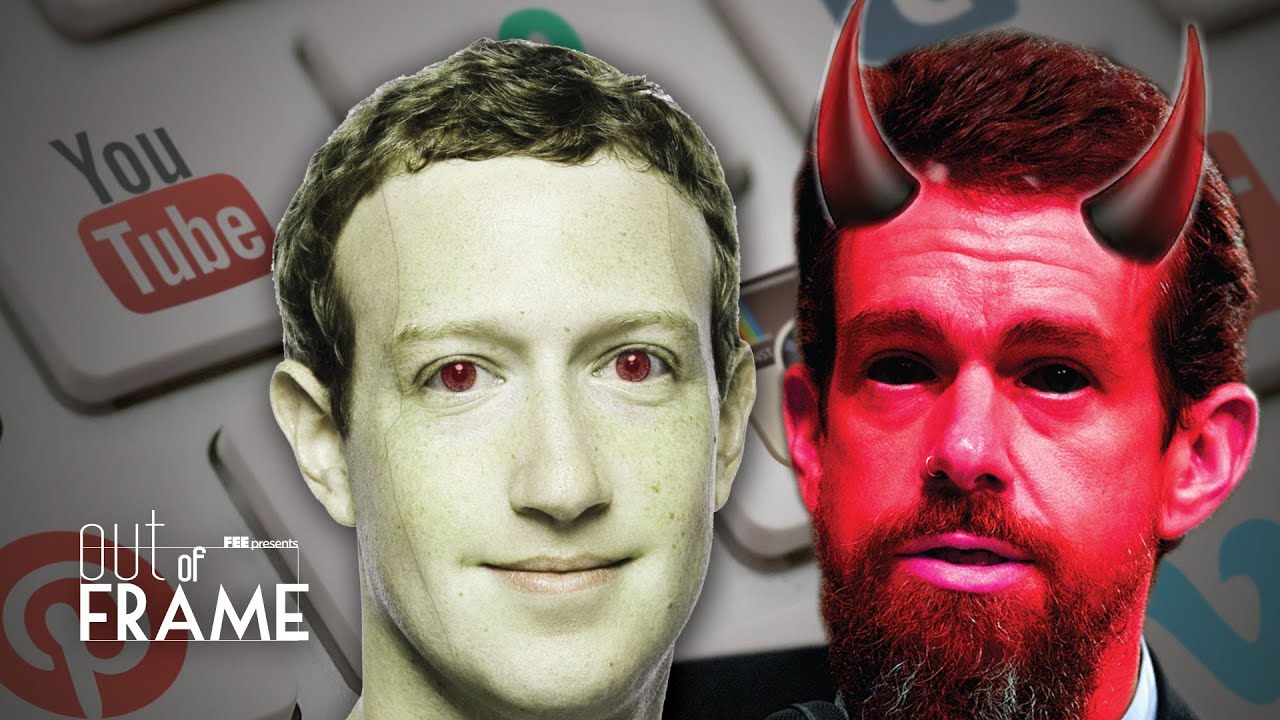TikTok Ban: Last Week Tonight with John Oliver (HBO)
Summary
TLDRThis video script critiques the debate over banning TikTok in the U.S., focusing on data privacy, national security, and the failure of U.S. tech regulations. It mocks the idea of banning one platform without addressing broader privacy issues, highlighting that the U.S. lacks comprehensive data protection laws. The script also critiques Meta’s social media platforms, which have been outpaced by TikTok in popularity. The analysis touches on the U.S. government's opaque evidence for the ban and the political contradictions surrounding the issue, ultimately arguing for stronger data privacy laws rather than platform-specific bans.
Takeaways
- 😀 The U.S. government is attempting to ban TikTok due to concerns over national security and privacy, with much of the evidence against the platform remaining classified.
- 🤔 TikTok's data practices are part of a larger issue of how tech companies, both American and foreign, handle user data, and are not isolated to just one platform.
- 📉 Major social media platforms like Facebook and Instagram are considered outdated by some users, with TikTok being preferred due to its effectiveness in connecting businesses with customers.
- 💼 The debate around banning TikTok reveals conflicting interests, with some advocating for national security while others focus on free speech and consumer rights.
- 🔒 The U.S. is the only G20 country without a comprehensive privacy law, leaving citizens vulnerable to data misuse across multiple platforms.
- 🔍 The lack of transparency from the government, with significant portions of evidence being redacted, has led to skepticism and distrust from both the public and TikTok itself.
- 💣 Mark Zuckerberg's involvement in lobbying against Chinese competition, including TikTok, raises questions about the motivations behind the push to ban TikTok.
- 📱 A significant portion of TikTok's user base is skeptical of the government's stance, especially as it involves vague claims about data misuse without concrete public evidence.
- ⚖️ The TikTok ban might be extended due to ongoing lawsuits, possibly involving the Supreme Court, with legal uncertainty surrounding the case.
- 💡 Experts agree that banning one platform like TikTok isn't enough to address privacy concerns—comprehensive data protection laws are necessary to tackle the broader issue of tech companies' data practices.
Q & A
What is the main reason given by the U.S. government for wanting to ban TikTok?
-The U.S. government argues that TikTok, owned by the Chinese company ByteDance, poses a national security risk by potentially allowing the Chinese government to access American users' data.
Why is there skepticism about the U.S. government's claims regarding TikTok's national security threat?
-The skepticism arises because the evidence supporting the national security threat is classified and has not been disclosed to the public or even to TikTok, undermining trust in the government's stance.
What is TikTok doing in response to the potential ban, and why is this significant?
-TikTok is suing the U.S. government over the impending ban. This is significant because it highlights the lack of transparency in the government's case, particularly with the redaction of key evidence in court filings.
How has the rise of TikTok affected American platforms like Facebook and Instagram?
-TikTok has overtaken Facebook and Instagram in popularity, with some creators and businesses preferring TikTok for its better customer engagement, particularly among younger audiences, making Facebook and Instagram seem outdated by comparison.
What example does the transcript provide to demonstrate TikTok's superior user engagement compared to other platforms?
-The transcript includes an example of a business owner who found a customer via TikTok, explaining that the customer would not have discovered their products on Facebook or Instagram, emphasizing TikTok's more effective reach.
What is the fundamental issue with U.S. data privacy laws, according to experts in the transcript?
-The key issue is that the U.S. lacks a comprehensive privacy law, unlike other major countries. Without robust data protection regulations, companies can exploit user data with little accountability, affecting users' privacy across multiple platforms.
How does the transcript describe the U.S. government's stance on privacy protection?
-The transcript critiques the U.S. government’s stance, arguing that its focus on banning TikTok is inadequate when the broader issue of data privacy is ignored, particularly since the U.S. is the only G20 country without comprehensive privacy laws.
What is the American Privacy Rights Act, and what happened to it?
-The American Privacy Rights Act was an attempt to introduce stronger data protection measures, including a requirement for companies to minimize the data they collect. However, key provisions were stripped, and support for the bill eventually faded, leaving the issue unresolved.
What does the transcript suggest is the ultimate solution to protecting Americans' data online?
-The transcript suggests that rather than banning TikTok, the U.S. needs to implement stronger, comprehensive privacy laws that would apply to all tech companies, ensuring better protection of users' personal data.
What is the significance of former President Trump's changing position on TikTok?
-Trump’s shift from supporting a TikTok ban to advocating for its preservation is significant because it underscores the political and strategic interests at play, especially given his own popularity on TikTok. It also highlights the inconsistency in political stances on the issue.
Outlines

此内容仅限付费用户访问。 请升级后访问。
立即升级Mindmap

此内容仅限付费用户访问。 请升级后访问。
立即升级Keywords

此内容仅限付费用户访问。 请升级后访问。
立即升级Highlights

此内容仅限付费用户访问。 请升级后访问。
立即升级Transcripts

此内容仅限付费用户访问。 请升级后访问。
立即升级浏览更多相关视频

The Social Dilemma Is Dangerously Wrong... Part I

The REAL Reason the U.S. Is Banning TikTok (It's Not Who You Think...)

Amerika'nın TikTok'u Yasaklamasının Gerçek Nedeni Ne?

Exactly how Trump could ban abortion

How would you go about solving this? Limit of x/sqrt(x^2+1) as x goes to infinity. Reddit inf/inf

Why Conservative Men Can't Resist This
5.0 / 5 (0 votes)
